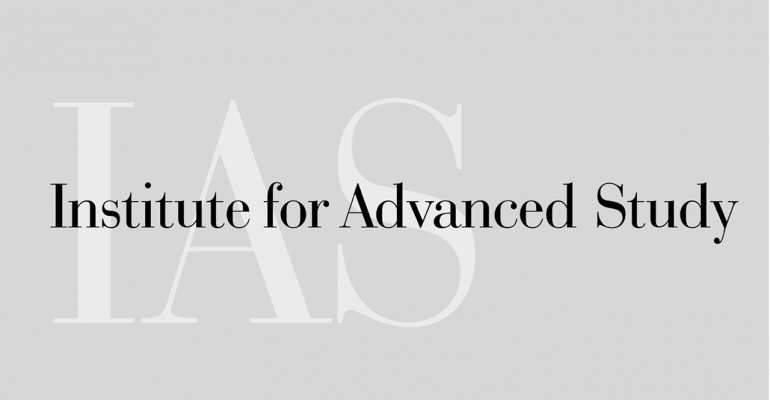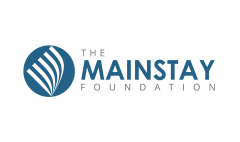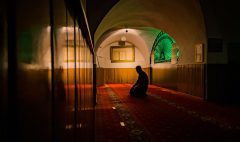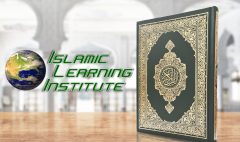Islamic Studies at the Institute for Advanced Study
October 7, 2016 2023-08-19 16:12Islamic Studies at the Institute for Advanced Study

Islamic Studies at the Institute for Advanced Study
The Institute for Advanced Study is one of the world’s leading centers for curiosity-driven basic research. Since 1930, it has served as a model for protecting and promoting independent inquiry, prompting the establishment of similar institutes around the world, and underscoring the importance of academic freedom worldwide. Current philanthropic support and a reliable stream of endowment-generated revenue allow its permanent Faculty and visiting researchers (known as Members) to freely determine the course of their study.
The Institute’s mission and culture have produced an exceptional record of achievement. Among its Faculty and Members are 33 Nobel Laureates, 41 of the 56 Fields Medalists, and 16 of the 17 Abel Prize Laureates, as well as many MacArthur Fellows and Wolf Prize winners.
THE FREEDOM AND INDEPENDENCE to pursue the most interesting and relevant questions about nature and humanity have been the essence of the Institute for Advanced Study for more than eighty years. The Institute exists to provide an optimal environment where scholars from all over the world can think and share, imagine and risk, and begin again without conditions and limitations. The Institute’s School of Historical Studies, established in 1949 with the merging of the School of Economics and Politics and the School of Humanistic Studies, expanded its scope to include Islamic and Near Eastern studies with the appointment of the late Professor Oleg Grabar (1929–2011) in Islamic Art and Culture in 1990.
This was followed by the appointment, in 1997, of Professor Patricia Crone in the field of Islamic History. Both appointments focused on the premodern period, recognizing the overall historiographical importance of the cultural, religious, and intellectual history of Islam and the Near East. Over two decades, Grabar drew both emerging and established scholars to the Institute, where, both before and after he became Professor Emeritus in 1998, Grabar continued to cultivate and advance fundamental research in a field in which he posited questions that challenged Western perspectives.
Crone has focused her research on the political, religious, and cultural environment in which Islam began and how it transformed, and was itself transformed by, the regions that the Arabs conquered.
With Oleg Grabar and Patricia Crone, the Institute has become, over a period of almost a quarter century, a recognized center for the pursuit of the study of Islamic culture and history. In finding a successor for Crone, who retired in July 2014, the School considered the most innovative and creative areas within the vast field of Near Eastern Studies, covering over two millennia and every aspect of humanistic knowledge from art to literature, and to political, cultural, social, and economic history.
The intellectual history of classical and postclassical Islam is an area that, because of renewed philological and textual activity made possible by an increased accessibility of manuscript libraries and collections, represents a primary challenge and a critical frontier in the future development of Islamic studies.
This particular field holds the greatest promise of long-term investment in fundamental research that will contribute to the transformation of future knowledge on the evolution of intellectual traditions not just in relation to Islam, but also Judaism and Eastern Christianity to the extent that mutual influences can be revealed.
Given these considerations, Sabine Schmidtke, previously Professor of Islamic Studies and founding Director of the Research Unit Intellectual History of the Islamicate World at Free University of Berlin, was appointed as Crone’s successor in July 2014. Schmidtke has played a central role in the exploration of heretofore unedited, and indeed unknown corpora of theological and philosophical writings. Thanks to her excellent knowledge of Arabic, Judaeo-Arabic, Hebrew, and Persian, Schmidtke is regarded internationally as one of the most accomplished and rigorous philologists.
She has devoted herself for the past fifteen years to the indefatigable study and publication of hitherto mostly unexplored manuscript collections. Her collaborations and research on manuscript materials span Iran, Russia, Turkey, Yemen, and beyond, and she regularly publishes both in the West and in the Islamic world. The broad reach of Schmidtke’s interests allows her to work across different traditions and to make important connections that would otherwise go unnoticed. For instance, her study of Arabic and Judaeo-Arabic manuscripts preserved in various Genizah collections has enabled her to recover works, by Muslim as well as Jewish authors, considered lost. Her research, thus, has an inherent innovative quality, in that it not only allows new perspectives to be opened but also enables other scholars to pursue their studies with greater awareness of available sources, and especially with transformed perspectives about the interrelations and connections among different strands of intellectual inquiry, across time, place, religions, and philosophical schools…
Contacts:
- Address: 1 Einstein Dr, Princeton, NJ 08540, US
- Phone: +1 609 734 8000
- Email: contactus@ias.edu
- Website: https://www.hs.ias.edu/islamic_world








